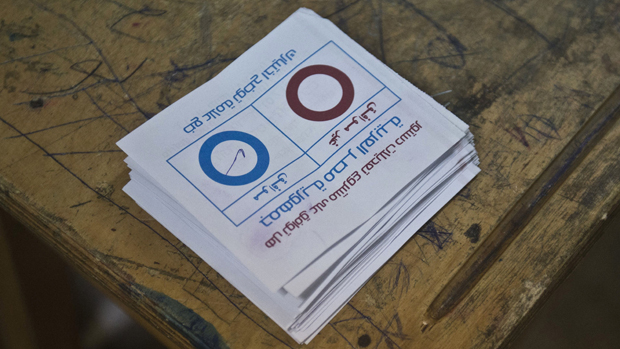Egypt: huge vote for new constitution opens way for Sisi
With voter support for new charter as high as 98%, military chief is almost certain to run for presidency

A free daily email with the biggest news stories of the day – and the best features from TheWeek.com
You are now subscribed
Your newsletter sign-up was successful
MORE than 90 per cent of Egyptians have voted in favour of a new draft constitution, a result that "sets the stage" for military chief General Abdel Fattah al-Sisi to take a run at the presidency, says Al Jazeera.
After two days of polling, an overwhelming majority of voters have approved a new draft constitution. The Daily Telegraph estimates that 98 per cent of voters have approved the new charter following provisional counting of votes cast in Egypt's 27 provinces.
The number of people who voted in this week's two-day poll is significantly higher than in 2012, when a draft constitution backed by Egypt's former president Mohammed Morsi and his Muslim Brotherhood party, was put to a referendum. The most recent poll has been widely seen as a referendum on Morsi's removal from power six months ago and the legitimacy of the military chiefs who deposed him.
The Week
Escape your echo chamber. Get the facts behind the news, plus analysis from multiple perspectives.

Sign up for The Week's Free Newsletters
From our morning news briefing to a weekly Good News Newsletter, get the best of The Week delivered directly to your inbox.
From our morning news briefing to a weekly Good News Newsletter, get the best of The Week delivered directly to your inbox.
But despite the overwhelming support for the new charter, the Telegraph says the latest referendum result represents the "polarisation of Egypt's society". Since President Mubarak was deposed three years ago, tens of thousands of people have been arrested in "competing and often violent demonstrations for and against the military and the Brotherhood", the paper says.
The result of the latest referendum also disguises stark regional and religious rifts, the Telegraph says. While voters flooded to polling stations in urban areas in the north, there was a "sharp dip" in the number of people voting in Upper Egypt (to the south), and in the west of the country. The reason, the Telegraph says, is that political Islam is historically strong in those areas and the Muslim Brotherhood, which boycotted the referendum, has widespread backing.
What no-one seems to doubt is that the referendum result will pave the way for General Sisi - the man who orchestrated Morsi's removal - to seek the Egyptian presidency. He is almost certain to announce his candidacy despite the advice of some analysts, and even supporters, who say he would be better advised to remain the power behind the throne.
The Telegraph says posters of the general - often showing him standing next to previous military strongmen such as the former dictators Gamal Abdel Nasser and Anwar Sadat - are a common sight in Egypt's cities. However, his "personality cult and glowing profiles in newspapers" have done little to reveal whether he has a "blueprint for solving Egypt's many economic, social and environmental problems".
A free daily email with the biggest news stories of the day – and the best features from TheWeek.com